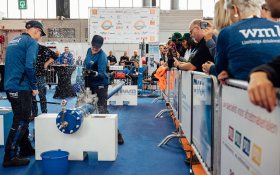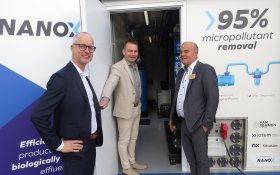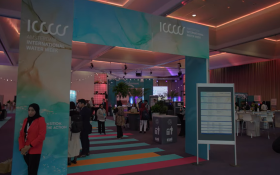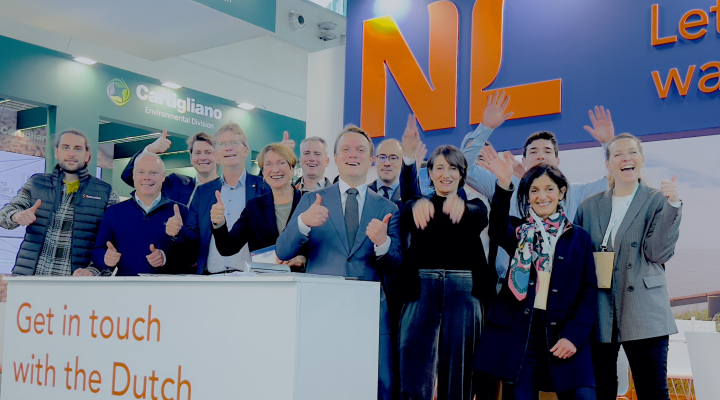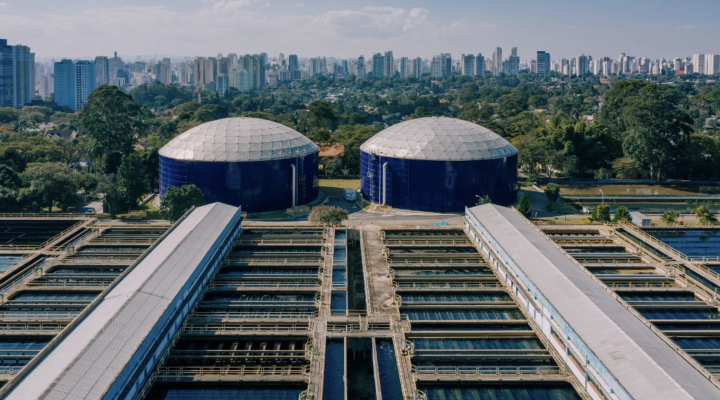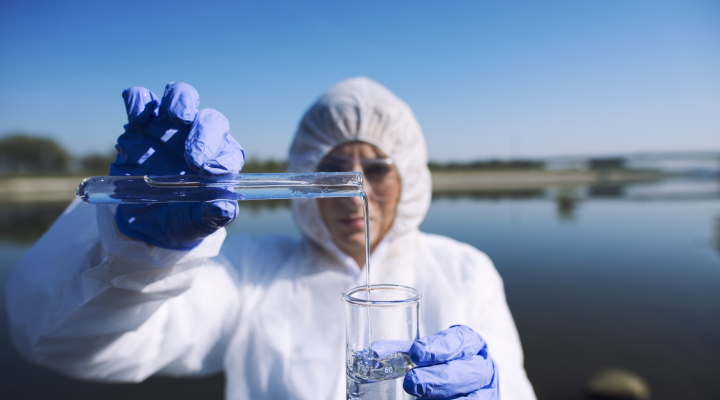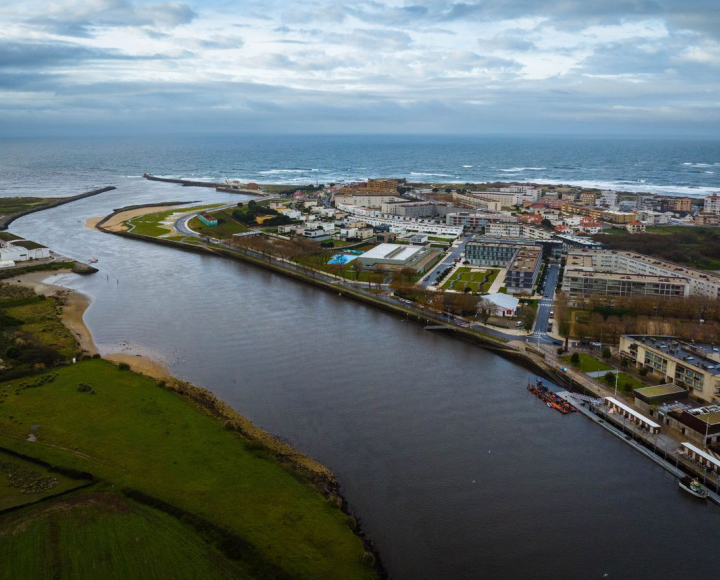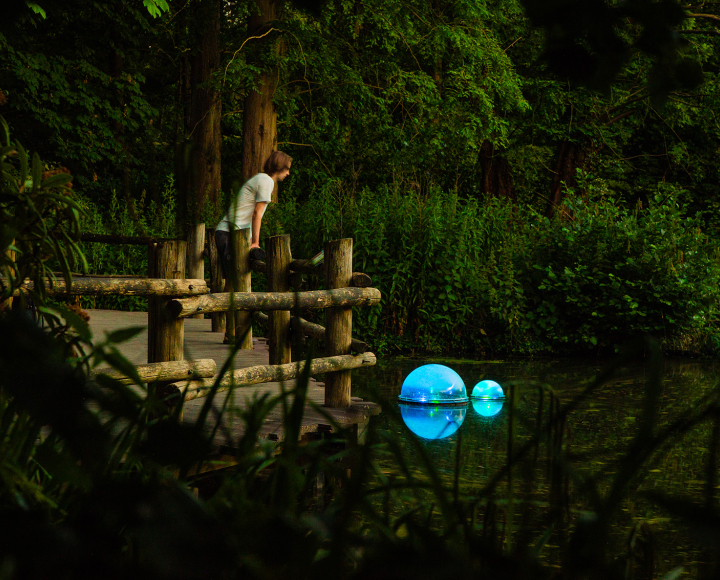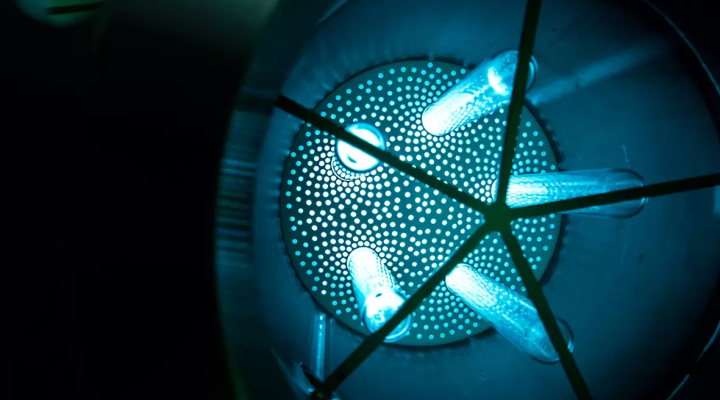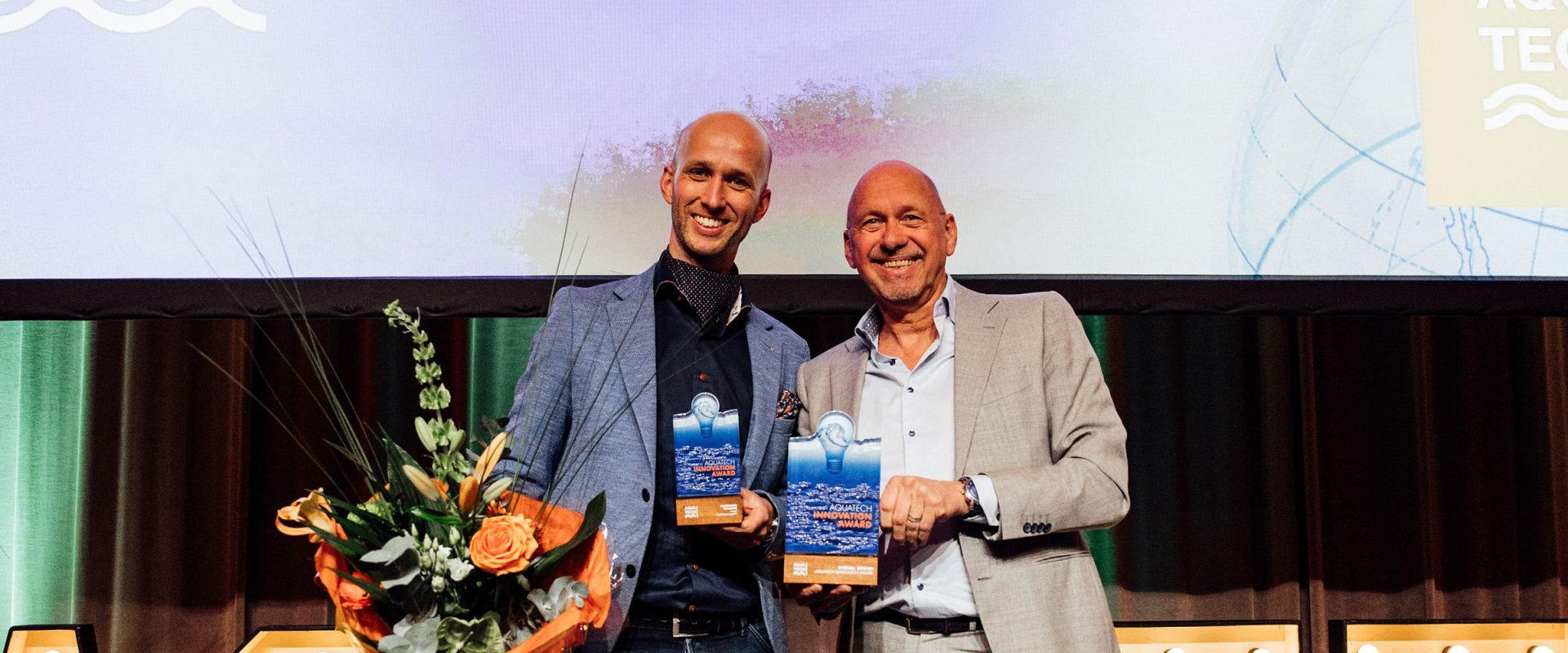
Dutch micro-pollutants removal technology wins Aquatech Innovation Award 2025
A new innovation developed in the Netherlands that can sustainably remove micro-pollutants during wastewater treatment scooped a major industry innovation award. Called Aurea from consulting engineers Royal HaskoningDHV, the solution has won the Overall Winner of the Aquatech Innovation Award for 2025.
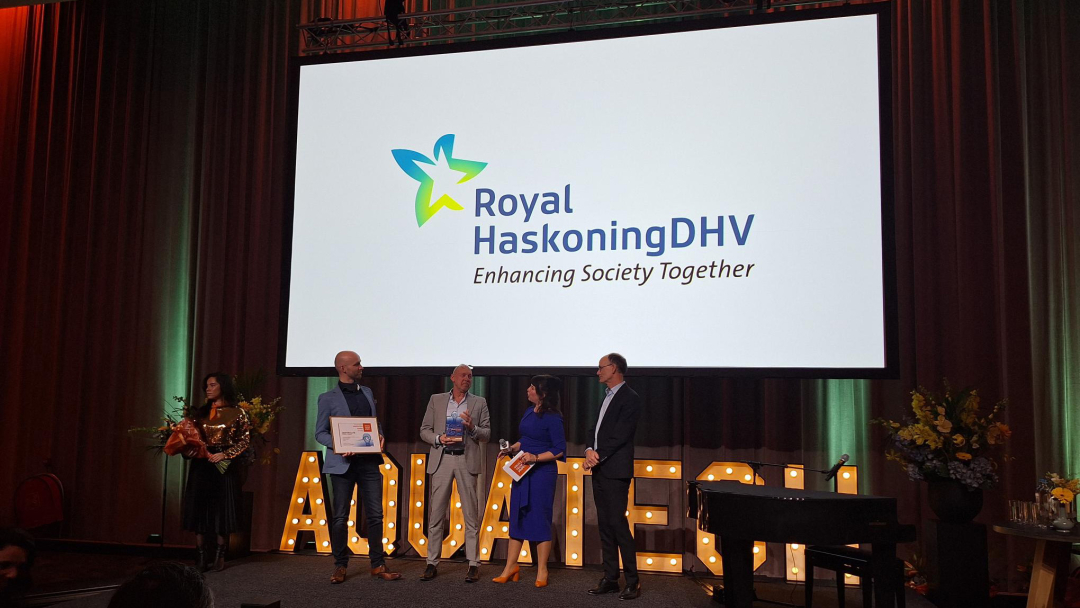

The Aquatech Innovation Award recognises world-class innovation and technologies that have the potential to disrupt the global water market. After an independent and detailed review led by jury chairman Professor Cees Buisman, Scientific Director of Wetsus, the European centre of excellence for sustainable water technology, Aurea from HaskoningDHV was announced as the overall winner at Aquatech Amsterdam’s opening ceremony.
Billion-dollar potential and close to nature
Aurea was developed in collaboration with Wageningen University to sustainably remove micro-pollutants from water in wastewater treatment plants, drinking water production sites, and industrial wastewater treatment plants. It combines the best properties of biological activated carbon filtration and oxidative treatment, meeting the objectives of the European Urban Wastewater Treatment Directive (UWWTD). This allows it to remove a wide range of organic micro-pollutants, using lower energy and resource consumption when compared to reference technologies, resulting in low CO2 footprint and operational expenses. Aurea achieves high chemical and biological water quality.
Chemical and medicinal residues remaining in wastewater and returned to nature can have a significant negative impact on biodiversity. The UWWTD has put wastewater treatment plants at the forefront of removing these chemicals and so the challenge is to find a way to do this in the most efficient and natural way possible. Jury chairman Professor Cees Buisman, Scientific Director of Wetsus, the European centre of excellent for sustainable water technology, said: “What you want with biological sewer treatment is that the process is as close to being natural as possible, because the water will be returned to nature. What impressed the jury was that Aurea strives to meet these goals.”
Aurea combines biological activated carbon filtration followed with a chemical oxidative treatment phase. The biological process removes organic material and a wide range of organic micropollutants, without activated carbon replacement. The subsequent chemical oxidation step, requiring minimal oxidant input, eliminates remaining recalcitrant pollutants. According to Buisman, “This is as close to a natural process as possible and uses activated carbon and ozone in a responsible and smart way.” The Professor also noted that “Aurea fits into this very important challenge for European society, and has the potential to be a billion-dollar market.”
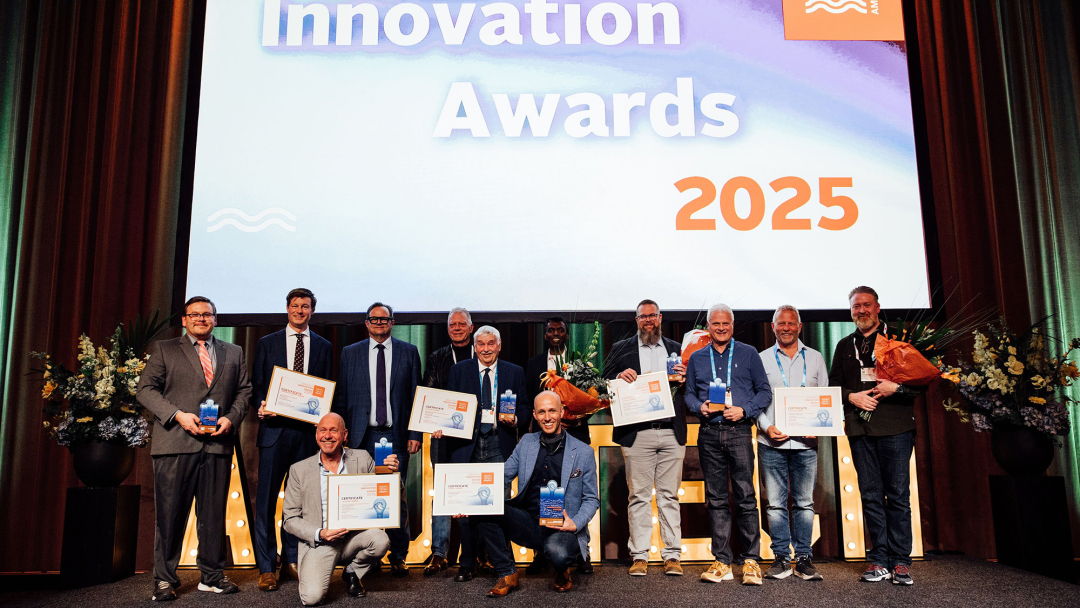

Aquatech Innovation Award 2025 – category winners
A total of 13 innovative technologies were shortlisted by the expert jury. In total, there were five categories’ winners:
- Wastewater Treatment | Aurea – Royal HaskoningDHV
- Water Supply | Aqua Membranes Printed Spacer Technology® – Aqua Membranes, Inc.
- Transport and Process & Control | UWR Systems – Urban Water Retention ApS
- Green Chemicals for Water | EVOdescale – Evodrop AG
- Innovation Not Yet To Market | L-GAP MD – RN Solutions B.V.
Impressive innovation in water technology
Acknowledging world-class innovations and the latest technological developments, this year’s awards received a high level of entries.
A common theme among entries was a focus on energy-efficiency and sustainability, particularly around the concentration and destruction of Per- and polyfluoroalkyl substances (PFAS). This year, the jury noted a growing trend of innovations aimed at reducing the energy required to eliminate PFAS.
“Being part of Innovation Awards has always been pleasure. Our water technology community never stops surprising me with its ability to come up with new innovations, whether they are small improvements or even sometimes big steps,” stated Buisman.




